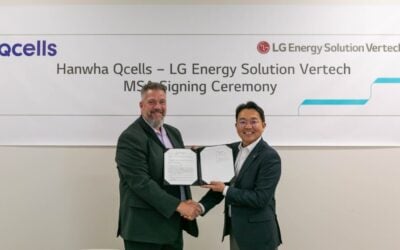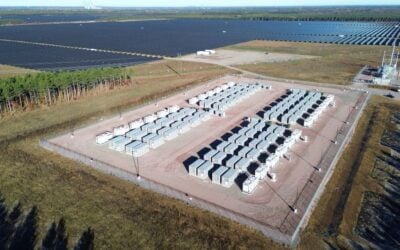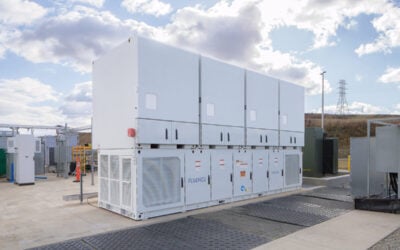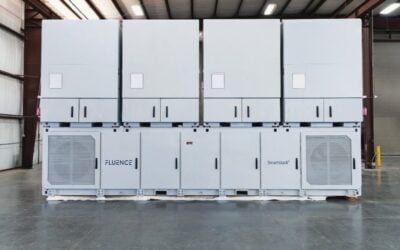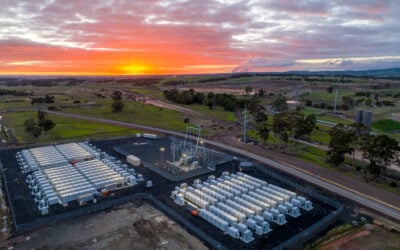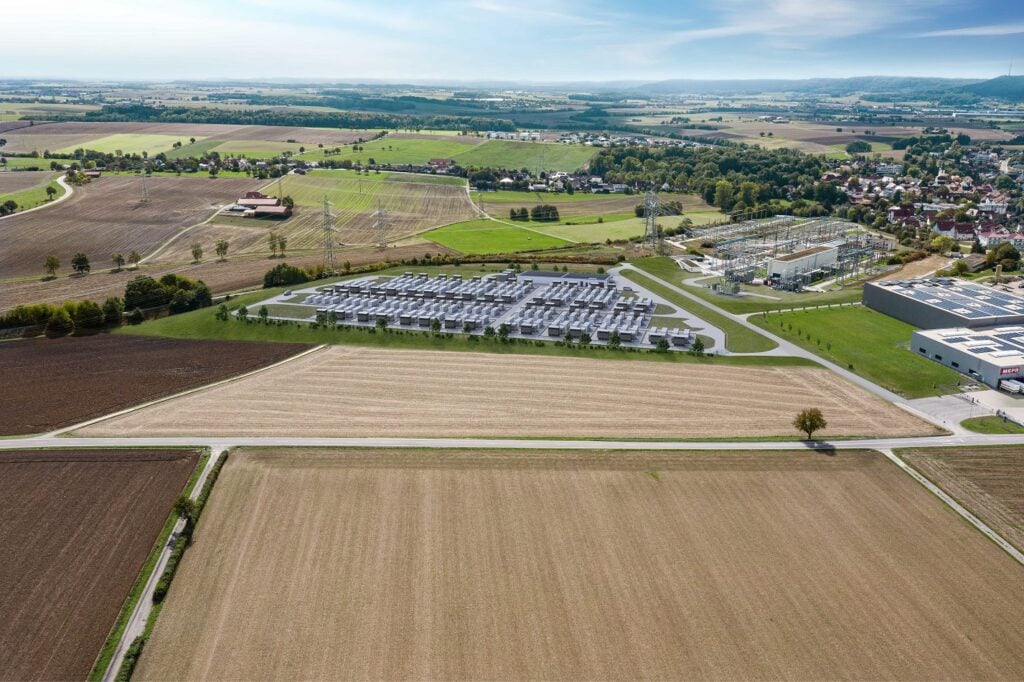
Global battery storage system integrator Fluence doubled its revenues in the first three months of 2023 and increased its full-year guidance again.
The company saw a 104% year-on-year increase in revenues to US$698 million for three months ending March 31, 2023, and a GAAP gross profit margin of 4.4%, from an equivalent loss the year prior. Its fiscal year runs from 1 October to September 30, making the period its Q2 2023.
Adjusted EBITDA loss was US$24.8 million, around half of the year prior’s and CEO Julian Nebreda said the company expected to be adjusted EBITDA positive in the final quarter of this fiscal year.
That is earlier than previously guided for (2024). Fluence is raising its fiscal guidance for the full-year 2023, from US$1.6-1.8 billion in revenues to US$1.85-2.05 billion, around 13-15%. It similarly raised its guidance from US$1.4-1.7 billion previously in the preceding quarter.
Try Premium for just $1
- Full premium access for the first month at only $1
- Converts to an annual rate after 30 days unless cancelled
- Cancel anytime during the trial period
Premium Benefits
- Expert industry analysis and interviews
- Digital access to PV Tech Power journal
- Exclusive event discounts
Or get the full Premium subscription right away
Or continue reading this article for free
In an earnings call, CEO Julian Nebreda said that the increase in forecast revenues was largely thanks to the “overall machine working better”, including battery production, supply chain, and de-risking its deliveries to customers.
The company’s share price jumped 12% to 22.44 USD as the markets opened today (11 May), the first period of trading after the results which were post-close yesterday. However, the price has since fallen back down to 20.28 USD at the time of writing over the course of today, cancelling out most of that boost.
New CEO Nebreda was brought in to ensure the company’s growth continued in a more profitable manner by focusing on higher-margin projects, according to an analyst interviewed by Energy-Storage.news at the time of Nebreda’s appointment. The company then all-but-confirmed this in its response to this suggestion from James West, analyst at investment banking advisory firm Evercore.
This looks to be the case, with the 78% growth in Q1 and now 104% in Q2 impressive but still much lower than the 250% seen in Q2 2022, and the increasing profitability. Nebreda said a key to this was segmenting its customer base. The fall in lithium carbonate pricing and a more liquid market for batteries has also helped, he said.
He also confirmed that some projects are still being delayed specifically as companies wait for IRS guidance around the 10% domestic content adder to the standalone investment tax credit (ITC), for which IRS guidance is expected during the current quarter.
Fluence has also revealed that it secured another energy-storage-as-transmission project, receiving a binding 200MW award, its third in the segment after ones in Germany and Lithuania, though it didn’t reveal where the third came from.
Fluence also appears to be reducing its exposure to projects it is deploying for or with AES Corporation and Siemens, the firms which founded it and controlling shareholders together. Revenue from ‘related parties’ fell from 72% of revenues in Q1 2022 and Q2 2022 combined, to 39% in Q1 2023 and Q1 2023 combined.

